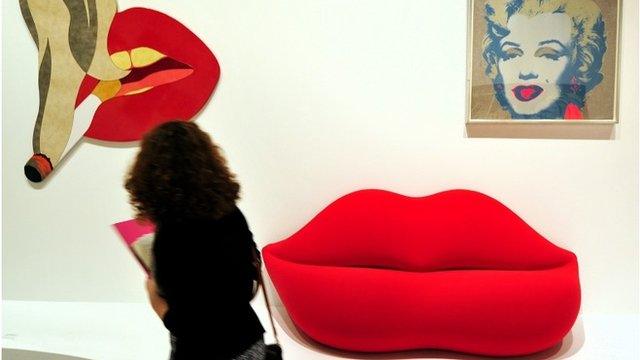Desi beats: Giving Indian aunties a pop art twist
- Published
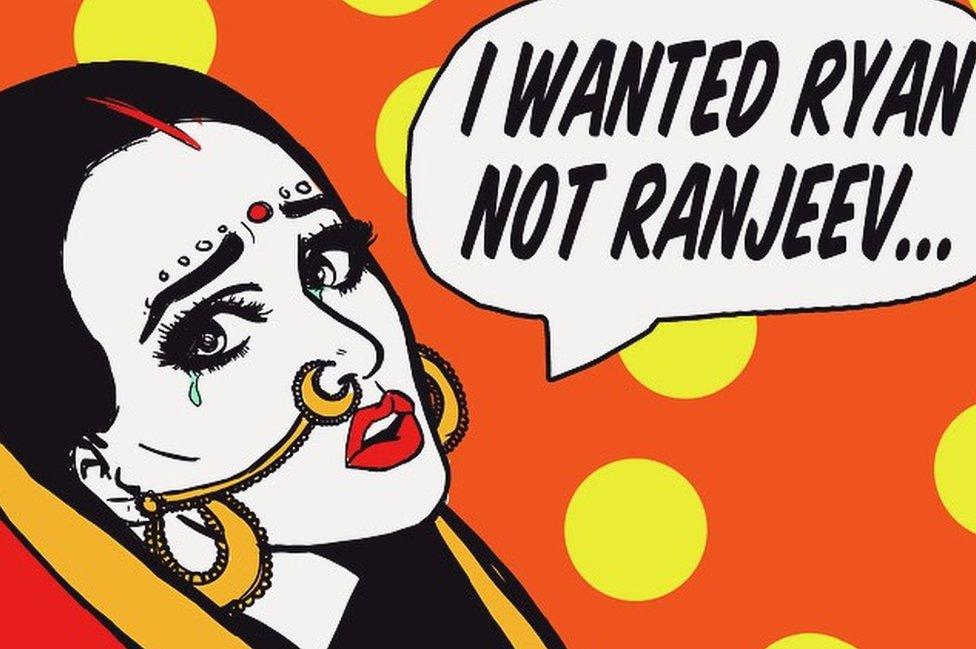
Maria Qamar says that she didn't expect her art to take off in the way that it has online
Maria Qamar's Instagram account, external is fast becoming a bookmark for young people from South Asian backgrounds, but what exactly is it about her pop art with a twist that's now drawing the attention of mainstream brands?
Channelling the comic book style of Roy Lichtenstein, the 24-year-old Pakistani-Canadian has poured her energy into drawing what she knew - not realising at first how her satirical take would strike a chord with other young people from the Indian diaspora.
And now, the sharp-witted self-proclaimed "stubborn" artist is bringing her experiences of the "desi world" and more specifically the tribe known as "the aunties" to the mainstream through her art.
The term desi derived from the Sanskrit word "desha", meaning country or land, and is used to refer to those of South Asian heritage who live abroad - the diaspora.
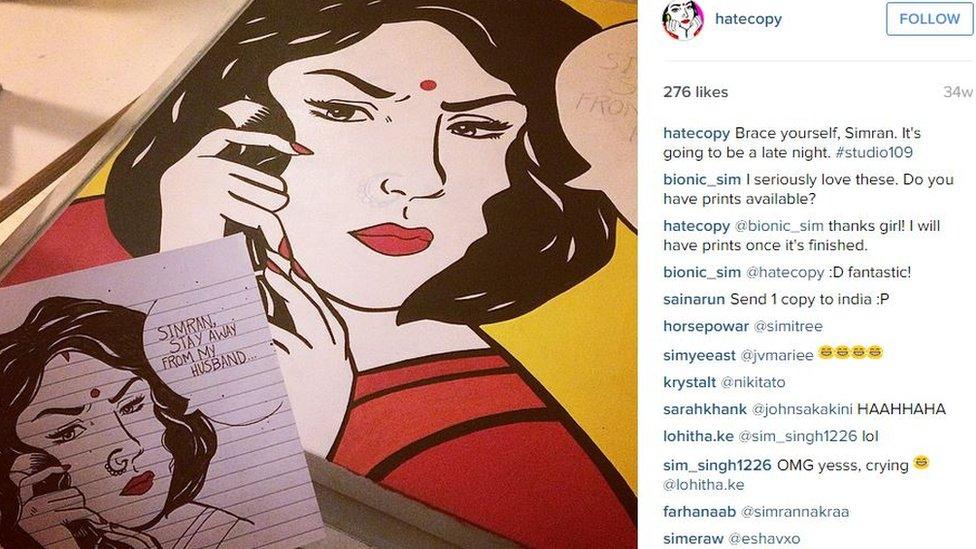
Maria Qamar says she has changed the ways she works on her art. Before she would sketch her ideas on a paper notepad and transfer them to a painting. Now she creates her art on a tablet
"I'm taking what already exists [in our culture] and laughing about it like an inside joke," Qamar says.
Her art featuring hyperbolic characters is so relatable for young people from similar backgrounds that fan comments such as "My life story" and "My mum, non-stop" are regularly left on her pages.
Interfering aunties
Which takes us on to the aunties...
They feature heavily in Qamar's Burnt the Rotis series but who are they? And, for those not in the know, what makes a desi "auntie" so special?
"They're women in your family who gossip about your life for no reason. They pretend to be your mother or talk about you to your mother about what you are up to.
"They want to know your personal things like bowel movements or blood type. Sometimes they plot to get you in trouble. Some of them even say they can use black magic... They go to extremes to make your life difficult," Qamar explains.
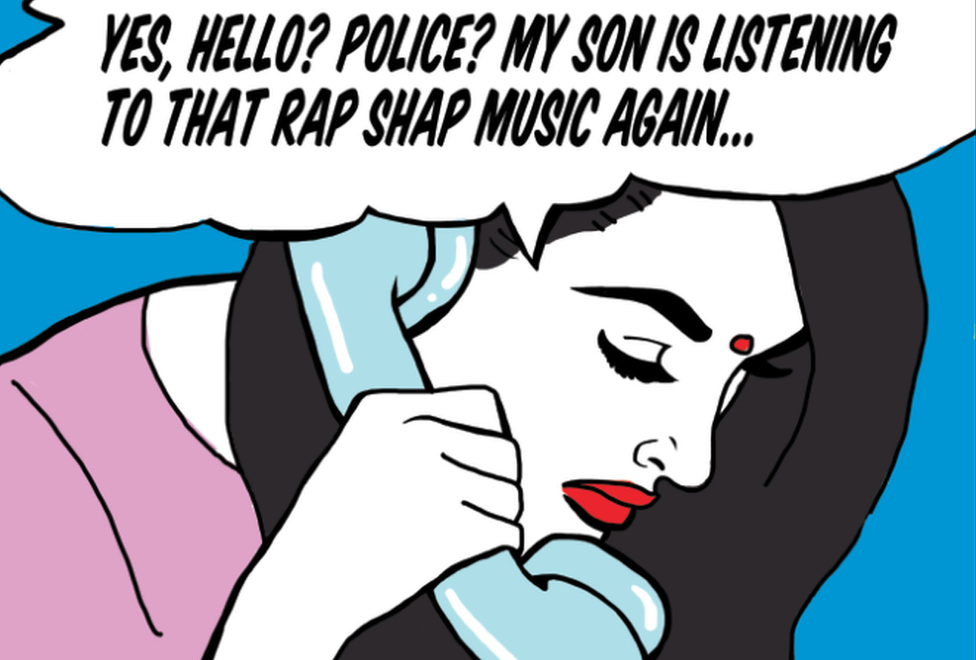
Maria says her art delivers a message
Luckily her own aunts aren't like that.
"My own aunties are not that bad. I'm close to my family - we have no bad blood. It's the aunties I see in soap operas who I find hilarious," she says.
But that has not stopped her from observing her family life and exaggerating it through her art.
"I always thought my family was dysfunctional. My family contains four very different personalities - my mum, dad, me and my brother. I thought certain things only happened in my family.
"The one piece, external I've drawn where the mother is yelling at her husband to call the police as they don't know where their daughter is at that very minute and could be dead - that's based on my own experiences.
"I didn't pick up the phone one afternoon as I was in class but they thought I had gone missing and was dead.
"I didn't have a lot of brown friends when I was younger to confirm these stereotypes. I didn't know that everybody felt this way. But girls, they tag their girl friends in the pictures I post. That's probably not literally them but they wish they could be that person in the art at that moment," Qamar says.
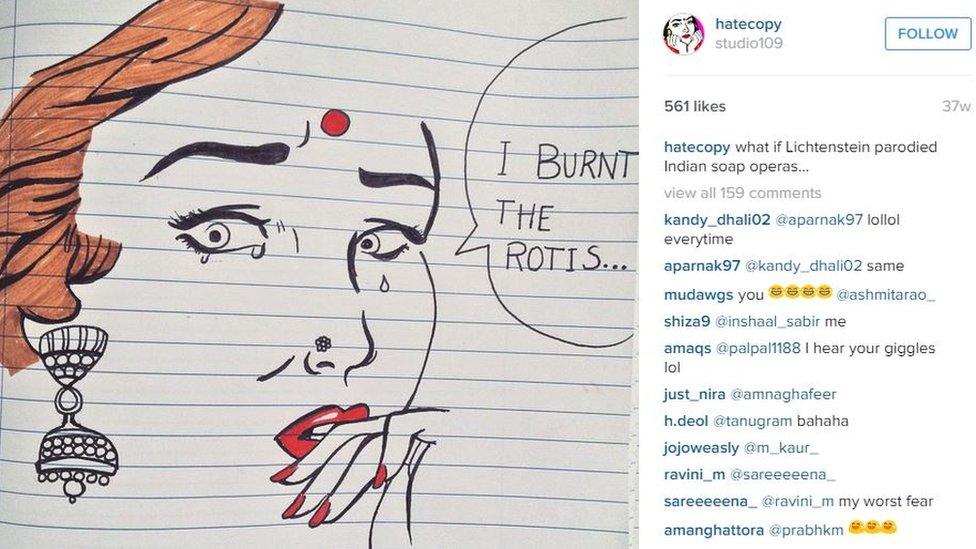
Her first Lichtenstein inspired post attracted global attention
Qamar began her project after she was made redundant from her advertising job just under a year ago. She says: "I was doodling and looking for inspiration and began mining my own culture.
"I moved over from Pakistan to Canada when I was a child and wanted to create something that would merge these two cultures together. I thought I needed some 'desi-ness' in my work. I started doing generic henna designs but lots of people were doing that. It was also too abstract. I wanted to create art with a message - something people would get straight away."
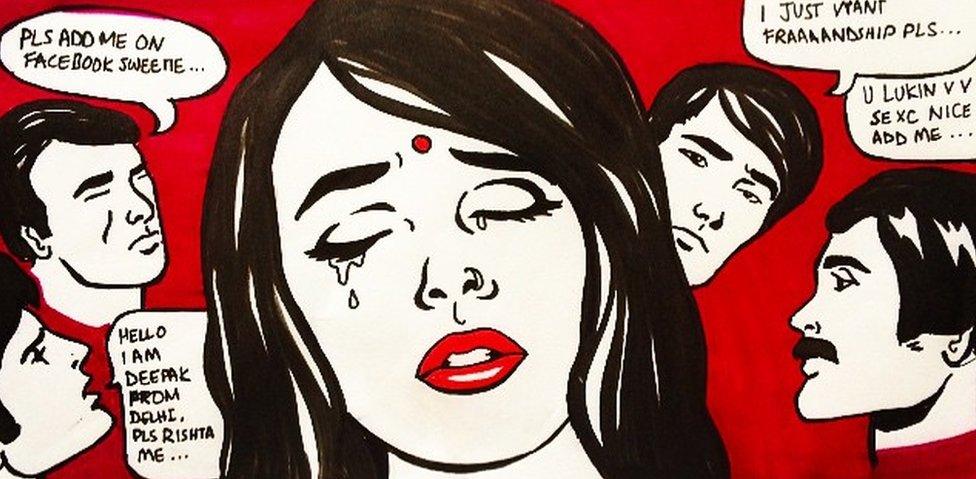
Artist Maria Qamar says she finds a lot of inspiration for her art in Indian soap operas, Bollywood movies and her own observations of desi life
"I was researching lots of artists to see what styles worked. When you see a Lichtenstein piece, you know exactly what you have in front of you. So I tried to emulate that but what I drew looked like an auntie. What he drew looked like a white lady, but mine differed.
"When I saw what I had in front of me on the paper, I started wondering 'what would my mum say'. That's how it all started.
"My mum gives me ideas too. I asked her if she was watching any Indian dramas and that's where the inspiration for the 'I Put Salt in her Chai' piece came from. She told me that an auntie was putting salt in someone's chai - which is a bit malicious but still quite fun."
One of her most popular, external postings, with more than 3,400 likes, showcases a doe-eyed, downcast woman saying: "Even coconut oil can't fix this marriage."
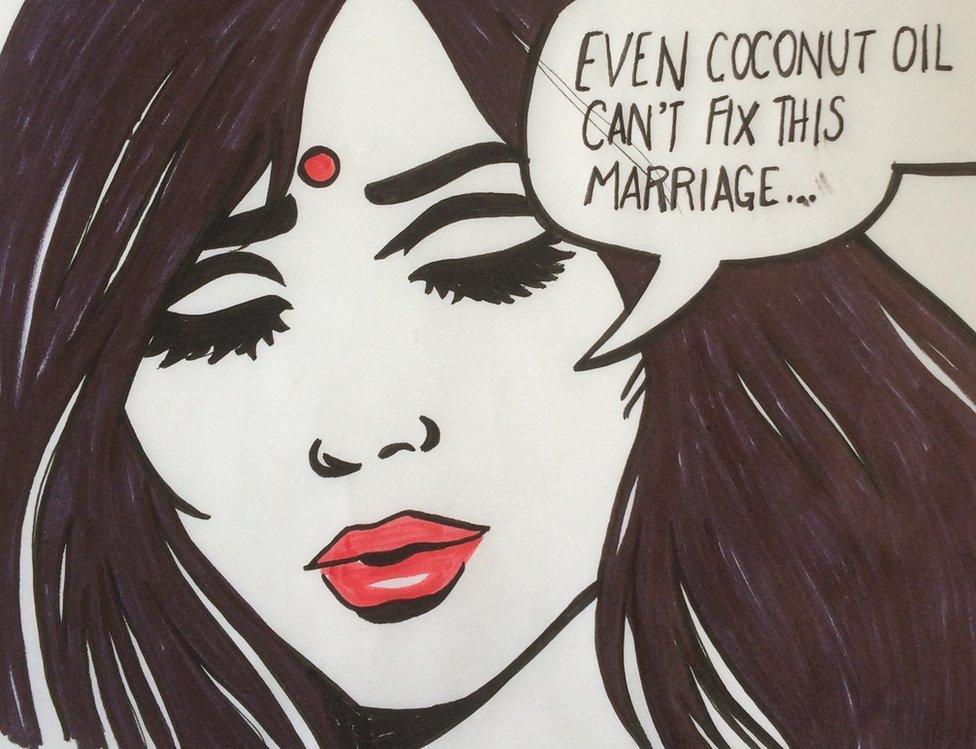
Comments left when this picture was posted on Instagram included "it's funny cuz I currently have coconut oil on my head"
For South Asian families, coconut oil tends to be a staple household item with a multitude of uses and is often marketed as having restorative properties... just maybe not in this case.
Qamar didn't didn't realise she would start getting global hits on her posts. "I thought people in North America would like it and Indian people would hate it. It's just light-hearted fun.
"However, I refuse to do straight up cultural appropriation e.g. making Marilyn Monroe into an 'auntie'. I won't take that step."
Qamar, who has started to exhibit and sell her work through her Hatecopy brand, says the emerging interest has made her change the way she works on the art and treat the enterprise more like a business.
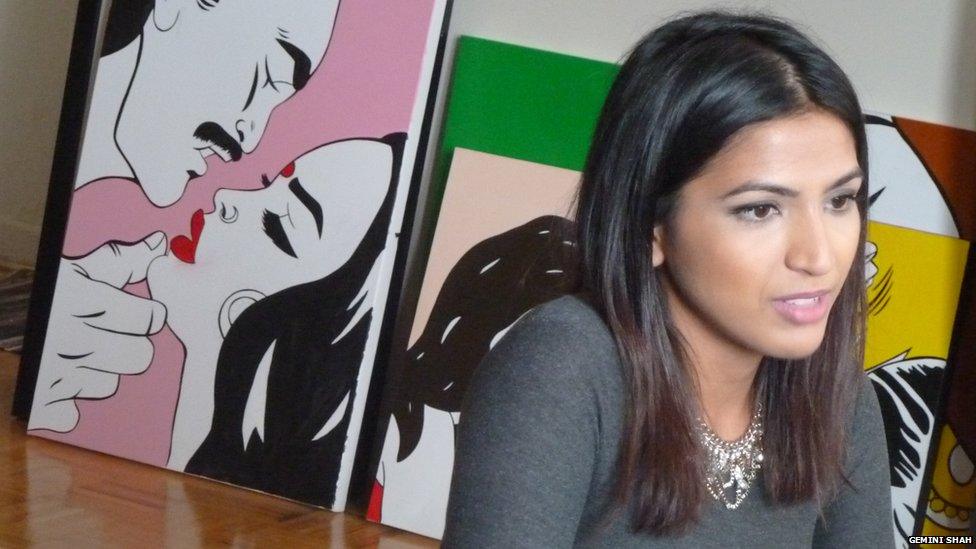
Maria Qamar says she is trying to be more business savvy about the way she pushes her art forward
She has invested in digital art tools so she can create the work and sell more prints more quickly.
"But I have been asked about why I still don't fill in my characters and give them colour," she adds.
"If you can't establish this is an Indian auntie, well that's not my problem. I do it for aesthetics, not to be politically correct."
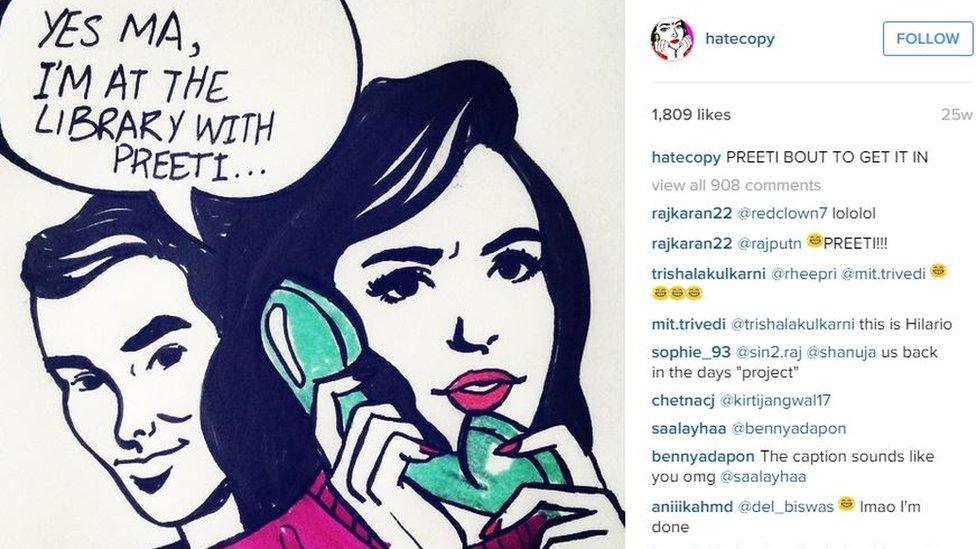
Maria says her her fans identify with her art
"The most political piece I've done I call 'Uncle Pride' and shows two uncles kissing."
Qamar says she thought it would a humorous way to introduce the important concept of marriage equality, especially after the US Supreme Court said gay couples had a constitutional right to get wed.
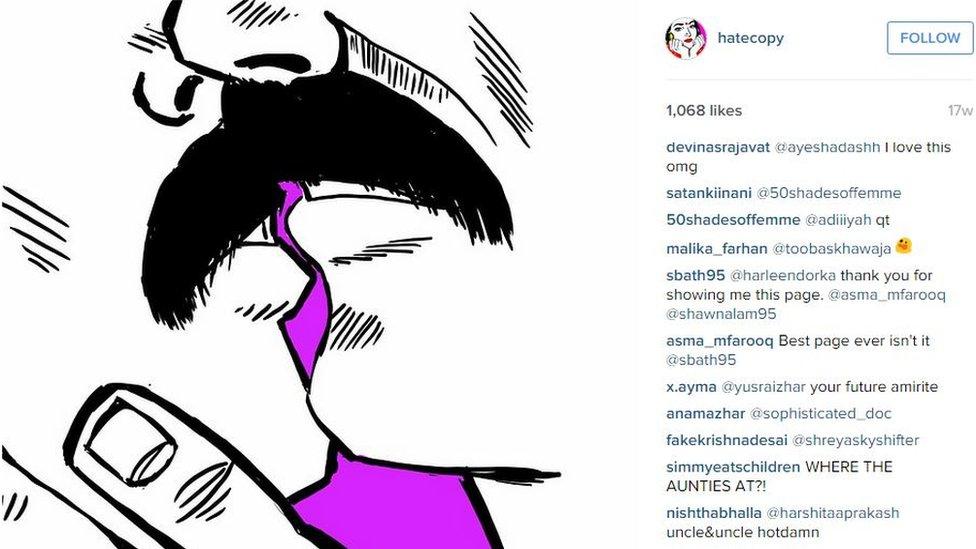
The artist is willing to tackle all subjects
She adds: "Most of the feedback to my work has been positive.
"The others - well they can just get over it."
- Published21 April 2015
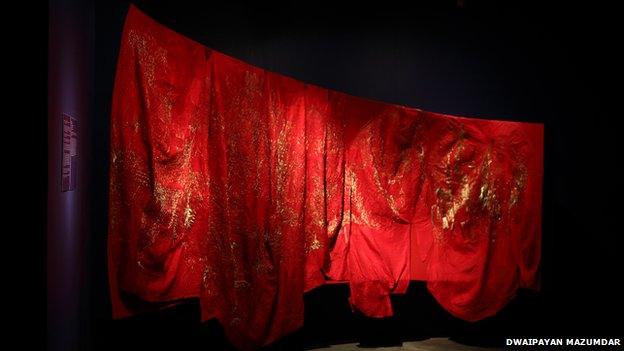
- Published4 April 2014
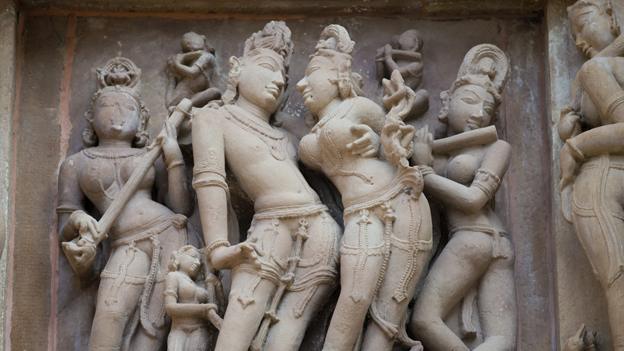
- Published3 June 2013
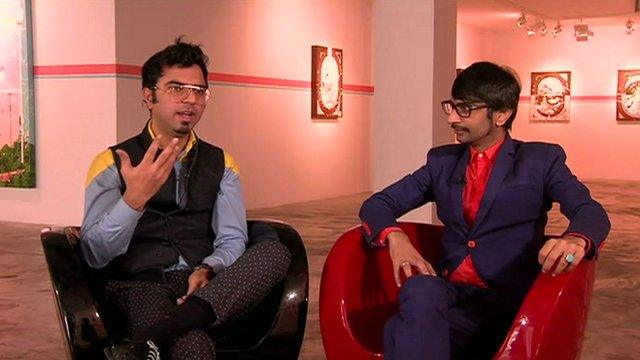
- Published22 October 2013
